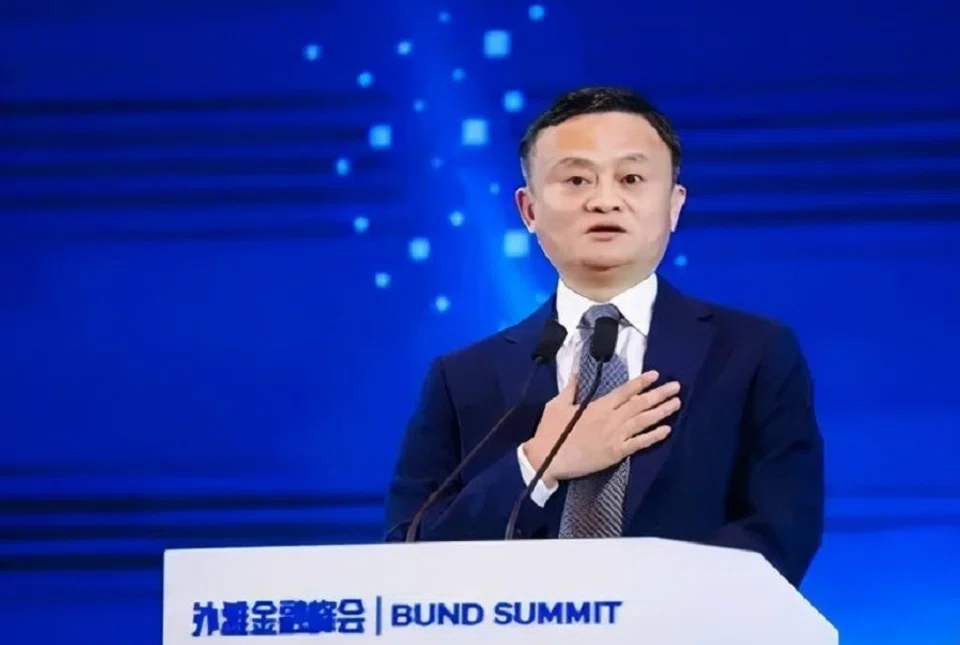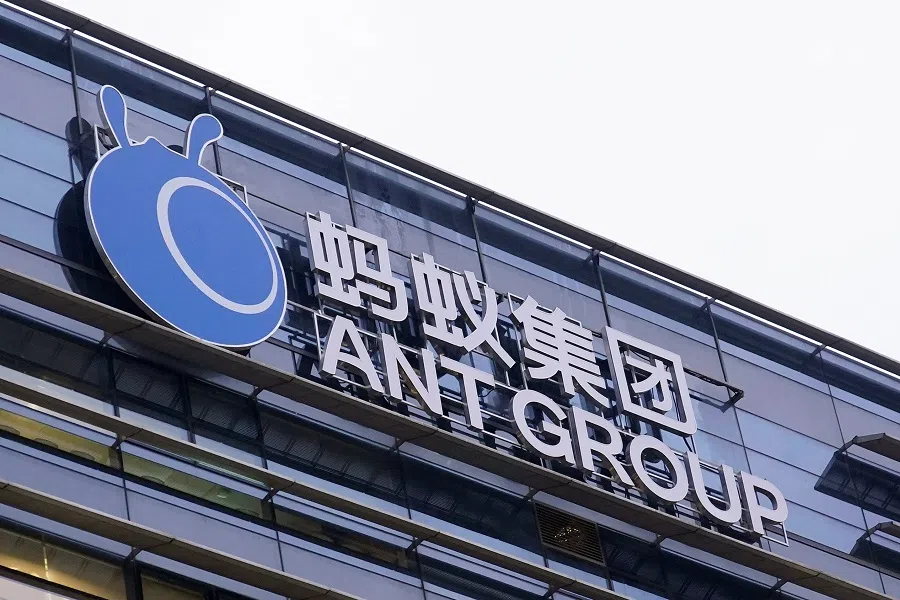Jack Ma: Traditional banks are operating with a 'pawn shop' mentality
Days before the listing of his Ant Group on the Hong Kong and Shanghai stock exchanges, Jack Ma at the Bund Summit in Shanghai criticised the existing global financial supervisory system as not fit for China's purpose as a young, growing economy striving for innovation. Analysts beg to differ, as China's enormous financial markets already bear great systemic risk. Is regulation and innovation mutually exclusive?

Whenever Alibaba founder Jack Ma makes a speech, it often becomes a hot topic. This past week, the Chinese internet has been abuzz with a speech of his. This time though, he seems to have gotten more brickbats than praise.
At the Bund Summit in Shanghai last weekend, while Ma self-deprecatingly said that he was an unofficial and non-professional member of the financial sector, he nonetheless criticised the financial supervision system in front of top financial leaders like Zhou Xiaochuan, former governor of the People's Bank of China, and Yi Gang, current governor of the People's Bank of China. His fiery speech quickly made the rounds on the internet and sparked debate in the financial circle.
In his speech, Ma referred to the Basel Accords - a set of internationally agreed banking supervision regulations - as a "club for the elderly" and stated that these regulations should not apply to China, which does not have a mature financial ecosystem yet. He also claimed that the world now "only focuses on risk control, not on development".
As a representative figure of innovation in China's financial industry, Ma believes that innovation comes with a price. He said: "Risk-free innovations stifle innovation." He also added this blunt criticism: "Your risk-free departments are putting the entire economy at the risk of non-development."
Ma further criticised traditional banks for operating with a "pawn shop" mentality, saying that they will be unable to support the financial needs of the future world.

Ma further criticised traditional banks for operating with a "pawn shop" mentality, saying that they will be unable to support the financial needs of the future world. He urged the use of technology and proposed a credit system based on big data in place of the current mortgage lending mechanism so that borrowers will not take on excessive loans after mortgaging their assets.
As early as 2017, the International Monetary Fund had already described China as having the world's largest banks, and being the world's second largest equity market and the third largest bond market.
While some praised Ma for making bold statements, many experts in the field criticised his lack of understanding of China's financial system. For example, although the Chinese financial system is different from mature markets, it is definitely not "in its youth" like Ma described. As early as 2017, the International Monetary Fund had already described China as having the world's largest banks, and being the world's second largest equity market and the third largest bond market. Therefore, China's large financial systemic risk should not be underestimated. Besides, traditional banks and fintech companies are not a good comparison as the target clients for the former's lending facilities are very different from that of the latter which mainly offer micro loans.
Instead of arguing if Ma's views are factually wrong, there is more value in thinking about the context of his speech and the message that he was trying to bring across.
Where is the sweet spot between innovation and regulation?
In a few days, Ma's Ant Group is going to be simultaneously listed in Shanghai and Hong Kong. After this fintech beast makes its entrance on the capital market, traditional financial markets will be dealt another blow. At the same time, the Group also faces tighter regulatory requirements. Following the announcement of Ant Group's listing, officials have quickly tightened two supervisory regulations that would impose greater restrictions on the Group and its subsidiary lending business. Following the revision and implementation of a new financial supervisory framework, Ant Group and other innovative enterprises would have their developmental pace limited. No wonder Ma lamented, "We cannot manage the future with outdated approaches."

What is most important for China's current financial system? Finance-trained Chinese Vice President Wang Qishan gave his answer in his opening speech at the Bund Summit, stressing that of the finance sector's principles of security, mobility, and effectiveness, security will always be the top priority, and it is necessary to safeguard the bottom line of preventing systemic risks.
Wang also noted the higher risks of new innovations in the financial sector in recent years and opined that "while these are idealistic, they should not be unrealistic", and called for seeking a balance between encouraging financial innovation, sparking market vitality, having greater financial openness, and expanding financial regulation capabilities.
... there is no turning back for financial technology development, and no stopping the transformation of the financial market.
Balancing innovation and regulation has always been a dicey issue for governments in countries including China and Singapore. The most common grouses among Singapore startups have to do with the regulatory system, such as requiring entrepreneurs to meet the same risk management criteria as major banks, or a one-size-fits-all approach to banning activities that are not included under current legal regulations. However, in recent years, the authorities have also gradually reformed the regulatory framework, to allow more room for innovation without compromising the stability of the financial system.

In 2016, the Monetary Authority of Singapore (MAS) rolled out the FinTech Regulatory Sandbox, to appropriately relax regulations and allow operators to test innovative financial products or services in a live environment within a designated scope and time frame. Last year, MAS followed up with "sandbox express", to allow operators with simple business models and low market risk to speedily start testing new financial products and services.
However, the huge China market is more complicated than Singapore. Take digital RMB for instance. It is in the testing stage, and following a one-week test run early this month, fake digital RMB wallets started popping up on the market. Once-popular P2P internet loan platforms also rose rapidly but subsequently collapsed, affecting millions of people. Each time something new comes up, trend-chasers and fakes follow, and even overtake the original creator. This creates a tougher test for China's financial regulation authorities.
In any case, there is no turning back for financial technology development, and no stopping the transformation of the financial market. Old "pawn shops" will have to revamp, while those in the new finance sector cannot just develop indiscriminately as they used to. And using regulation to remove the weeds without damaging the flowers so that the financial market is full of blooms rather than weeds is a skill that policymakers have to carefully balance.





